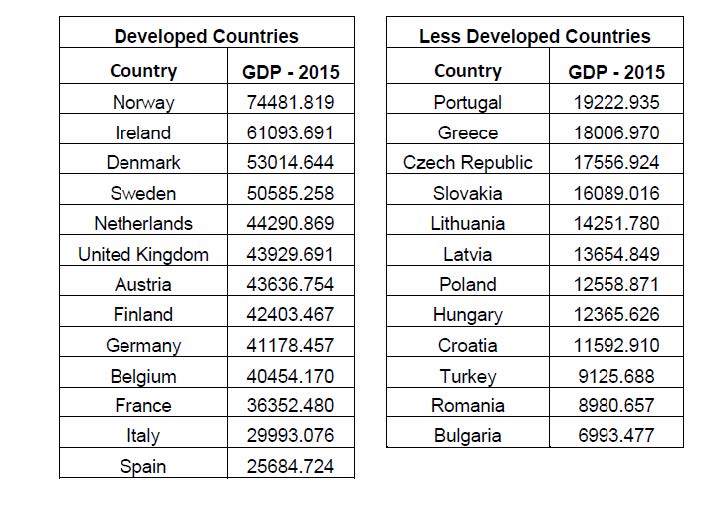Yusuf Aguş (Economics student ’18) shares a summary of his bachelor’s thesis on the measurement of the compensating wage differentials in European countries.
According to the economic theory, the differences of working conditions are compensated by wage differentials at the equilibrium in a perfect competition setting. In other words, if a worker is working in a job with undesirable characteristics, he or she needs to have a higher wage than his or her counterparts.
Earlier studies failed to find significant results for the effect of most of the working conditions on wages, which could be possibly caused by several different biases, and focused on the effect of the risk of fatal or non-fatal accident. These biases can be summarized as the effect of unobserved characteristics, survey errors, heterogeneity of individual preferences on job characteristics and endogeneity of job riskiness. In this direction, the effect of risk perception on wages has been tried to be estimated by using 2010 and 2015 waves of the data set of European Working Conditions Survey (EWCS) which includes a wide set of data from 25 countries. As it is a very wide set of data, it allows us to control for a lot of heterogeneities across the individuals. A three-staged estimation strategy has been used in order to show the cross-national differences clearly. Firstly, the estimation is done for all the countries. Secondly, the models are estimated only for Turkey. In the third and the last stage the estimation is done separately for two different country groups, which are constructed according to their GDP levels. For the sake of simplicity, countries with higher GDPs are addressed as the developed countries and the rest as less developed countries. The lists of country groups can be found in the following table:
The estimation gave insignificant results for most of the cases. However, the most salient result has appeared in the estimation for the less developed countries. A negative and significant effect of risk perception on wages has been received for the group of less developed countries, which can be the sign of a segmented labor market across European countries in terms of compensation of working conditions.
For the case of Turkey, It can be observed that Turkish workers receive a positive wage premium for being informed about risk, but they do not think that their wage is compensated for risk. Pooled results are quite confusing as well. Risk perception did not bring a significant wage premium, but workers who think that their wages are compensated for risk have higher wages than their counterparts. According to these somewhat controversial results, we might say that European workers are not perceiving the risk correctly.

